A vegan Mediterranean diet is a health-conscious lifestyle that combines a plant-based vegan diet with the principles a Mediterranean diet. Not only is it enjoyable and easy to follow, it's nutritious, may promote longevity, and is less harmful to the environment.
In this article we'll discuss the guidelines for following a vegan Mediterranean diet, including which foods to eat and to avoid, the difference between a Mediterranean diet and Mediterranean cuisine, and lifestyle habits to embrace.
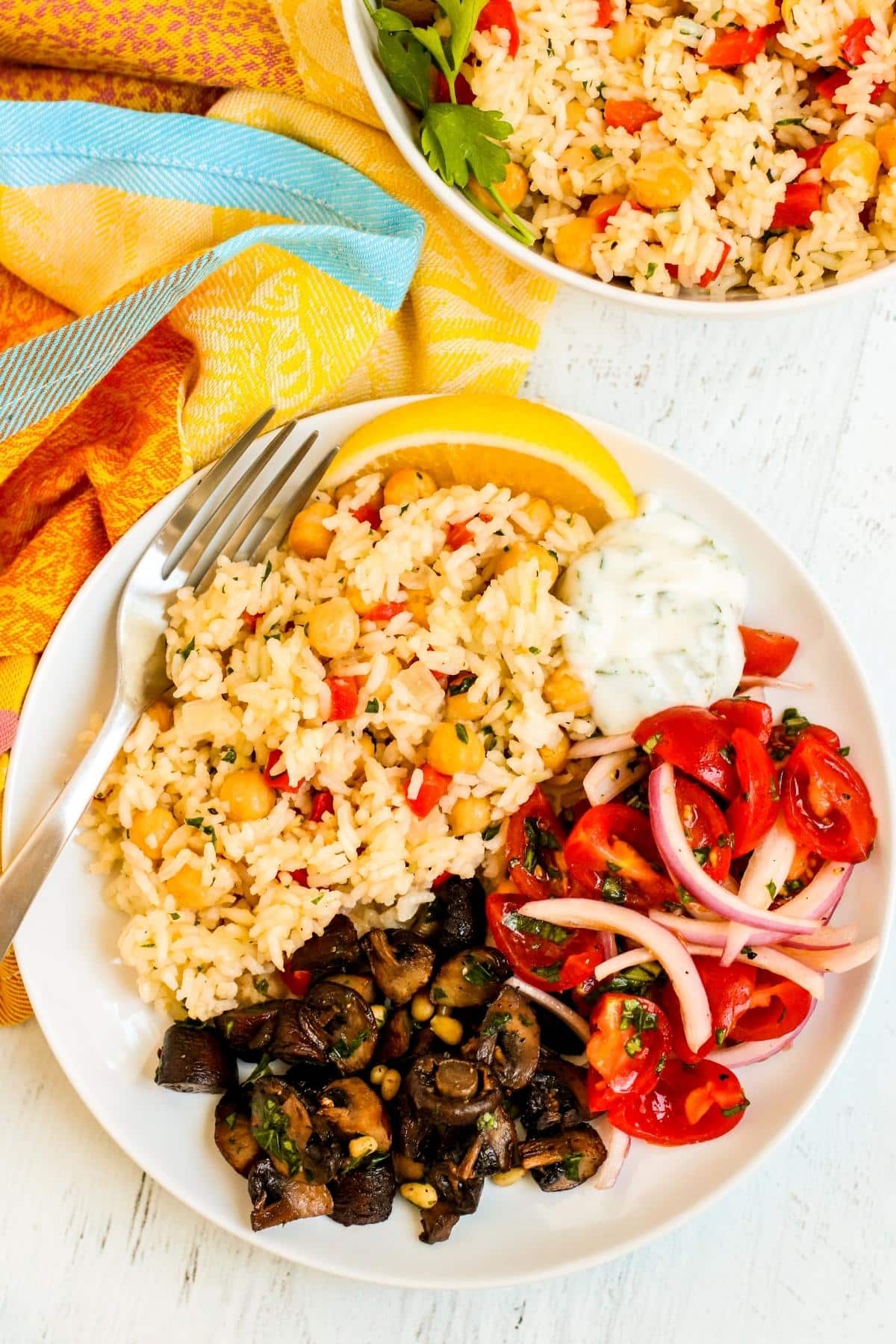
💌 Save For Later!
I'll also send you other recipes I know you'll love. Unsubscribe at any time.
While you may have heard the terms “vegan” and “Mediterranean diet,” it’s not as common to hear the two together. But these lifestyles complement each other very well.
While a Mediterranean diet isn’t new, it’s been in the media a lot recently. For several years running, U.S. News & World Report has rated it the best overall diet. Numerous studies have shown that people living in areas bordering the Mediterranean Sea in Greece, Italy, Spain, France, Turkey, North Africa, and the Middle East are generally healthier and live longer with a lower incidence of chronic disease.
These regions each have their own way of cooking, but many similarities are present when it comes to the types of foods they consume. And while a Mediterranean diet is primarily plant-based, it's not entirely vegan since it does contain small amounts of dairy, fish, meat, and poultry.
However, as you'll learn here, a vegan Mediterranean diet combines the best of both lifestyles. It's easy to follow and maintain, is incredibly delicious, and will allow you to feel your best without feeling deprived.
Jump to:
Vegan diet
People who consider themselves vegan do not consume animal products. They may follow this lifestyle for one or a variety of reasons.
Some people are vegan for their health, while others are vegan for the animals or for the environment. And many are vegan for all of these reasons.
In addition to not eating meat, fish, and dairy, vegans avoid using products derived from animals. For example, they will avoid wearing leather shoes or using cosmetics tested on animals.
Mediterranean diet
The key components of the Mediterranean diet are the following:
- Eating primarily plant-based foods such as vegetables, fruit, whole grains, legumes, and nuts
- Replacing animal-derived fats with healthy fats like olive oil
- Using herbs and spices to flavor foods instead of salt
- Reducing consumption of red meat, poultry, and fish
- Enjoying meals with family and friends
- Getting plenty of exercise
And following a Mediterranean diet is relatively simple and inexpensive compared to other ways of eating. This is a big benefit because it makes this lifestyle easier to stick to in the long term.
Vegan Mediterranean diet: a perfect match
Since both are largely based on eating plant-based foods, it’s a natural fit to combine a vegan diet with a Mediterranean diet. Some people call this a "greener" Mediterranean diet since it may provide health benefits and is better for the environment.
I think you'll find a vegan Mediterranean diet lifestyle is a delicious way to eat and live.
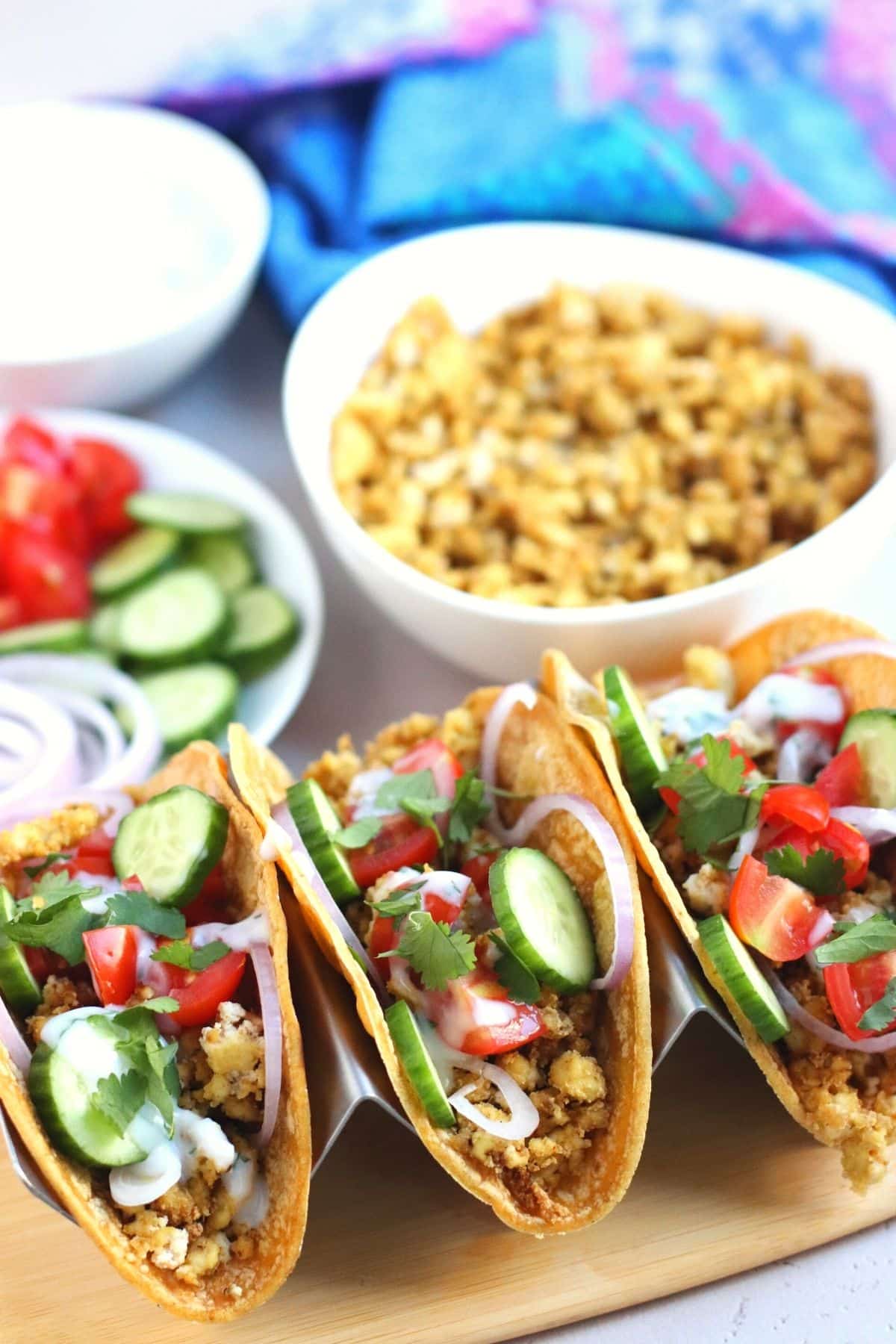
Diet versus lifestyle
I like to refer to a vegan Mediterranean diet as a lifestyle. This is because it encompasses more than just what you eat. In fact, some of my favorite aspects of it go beyond what we put on our plates.
It's really about how we choose to live our lives. And these choices help contribute not only to our physical health, but our mental well-being.
So it’s not just about figuring out what you should eat for breakfast, lunch, and dinner. This lifestyle is about other decisions we make in our daily lives, as well, including moving our bodies, socializing with loved ones, and enjoying nature.
Foods to eat
When it comes to a vegan Mediterranean diet, the foods to eat are varied and plentiful. It’s very similar to a whole-food, plant-based diet (WFPB.)
While the term plant-based is thrown around a lot in marketing these days, for our purposes it refers to foods that are derived from plants. These do not include milk, eggs, or honey.
Whole foods include the following:
- Whole grains (including rice, millet, quinoa, and whole wheat)
- Vegetables and fruits
- Beans, legumes, and minimally processed plant-based protein (including, chickpeas, lentils, black beans, tofu, and tempeh)
- Herbs and spices
- Nuts and seeds
The major difference between a vegan Mediterranean diet and WFPB is that a vegan Mediterranean diet includes olive oil. Oils are considered processed foods in a WFPB diet.
Extra virgin olive oil is a good choice for sauteing, roasting, and adding flavor to salads. Use it in place of butter, margarine, and canola and highly processed vegetable oils.
However, use olive oil or alternatives like avocado oil and walnut oil sparingly. While they are heart-healthy, if used in excess they may lead to weight gain since they are high in calories.
Kitchen staples
When you keep foods that are healthy and delicious in your pantry and refrigerator, it’s much easier to figure out what to eat. Look for simple ingredients that can be eaten alone or combined into flavorful and colorful meals.
These are some favorites I like to keep on hand:
- Whole-grain bread
- Oats
- Brown rice
- Quinoa
- Pasta
- Cashews
- Pumpkin seeds
- Potatoes
- Sweet potatoes
- Carrots
- Leafy greens (lettuce, kale, spinach, etc.)
- Tomatoes
- Avocados
- Cucumbers
- Squash
- Broccoli
- Cauliflower
- Onions
- Garlic
- Fresh and dried herbs and spices
- Extra virgin olive oil
- Fruit
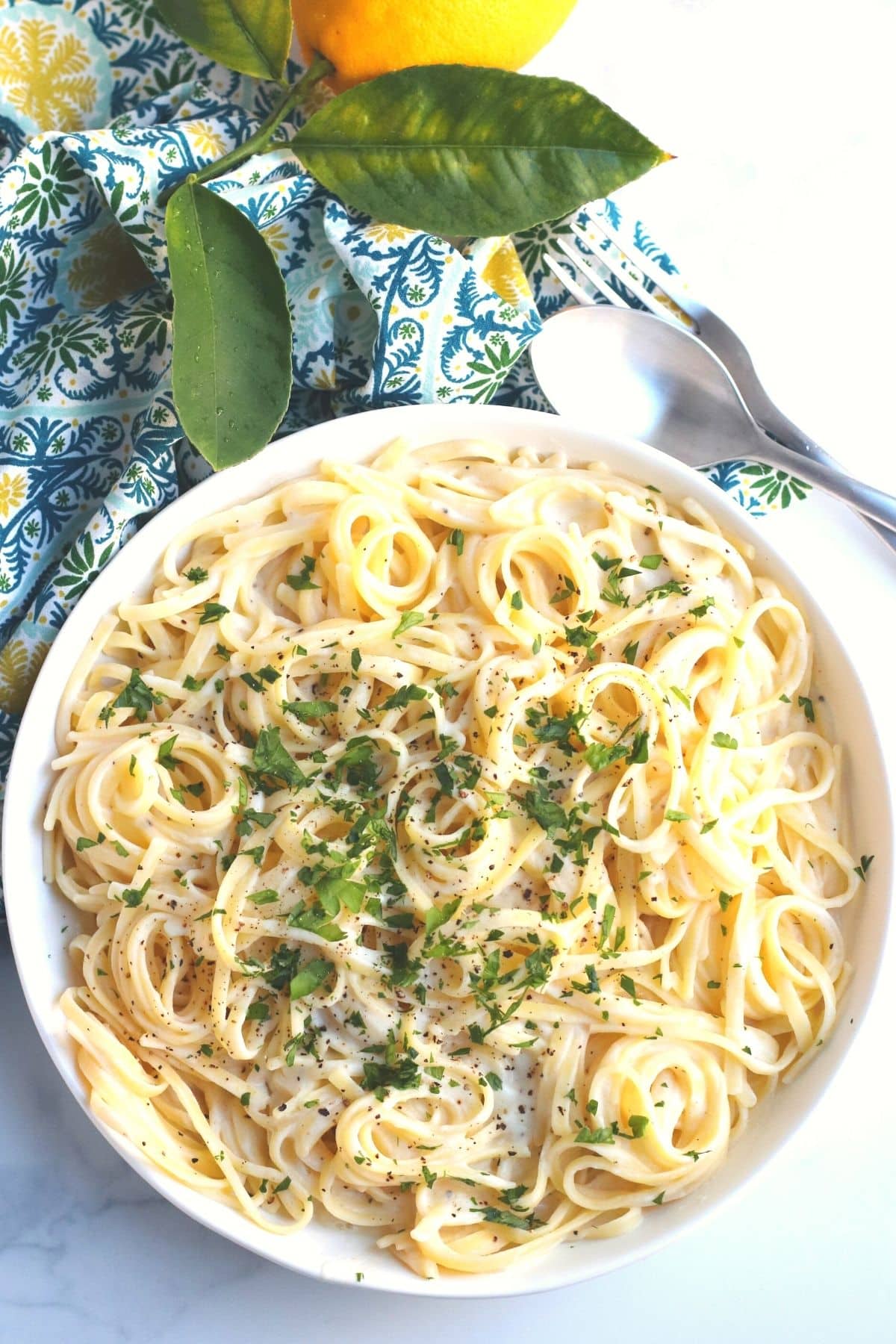
Foods to avoid or to consume in moderation
Other than avoiding animal products including dairy and honey, the list of foods to avoid is relatively short. Most foods can be enjoyed in moderation.
Processed foods
If you’ve been to the supermarket lately, you’ve probably noticed an explosion in the amount of plant-based foods available now. In fact, I can’t think of a single meat- or dairy-based food that isn’t available in vegan form.
However, a lot of these products are highly processed. They are alright to enjoy occasionally, but be aware of their fat and sodium content.
Processed sugar
Another thing to keep your eye on is processed sugar. While desserts like cake and cookies are pleasurable to enjoy on special occasions and with friends and family, try to avoid adding extra sugar to your diet, especially in the form of sugary drinks and treats.
When you're craving sweets, try naturally sweetened options like baked apples, a chocolate peanut butter smoothie, or vegan strawberry matcha latte.
Excess salt
Salt, in moderation, is fine to include, as long as you are not on a low-sodium diet as directed by your physician. However, you may find that you don’t need very much salt when you cook if you’re using flavorful herbs and spices.
I like to wait and add a little salt right before serving. And remember to taste as you go. It’s easy to add in a little more salt, but it’s difficult to take it back out!
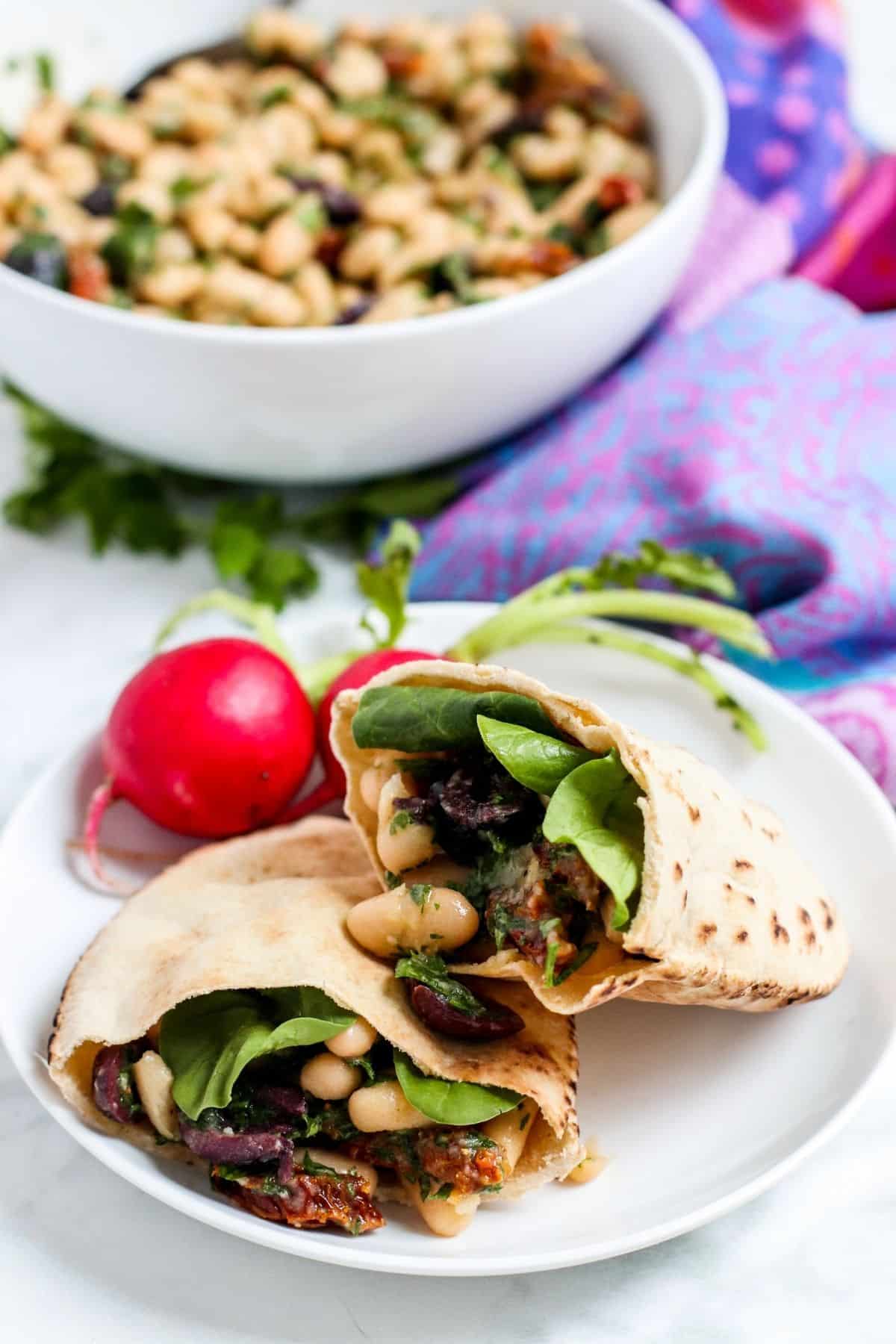
Mediterranean diet versus Mediterranean food
There is a misconception that a Mediterranean diet is synonymous with eating Mediterranean food. However, this is not necessarily the case.
We tend to think of foods that we enjoy in Italian, Greek, and Middle Eastern restaurants such as pasta, Greek salad, falafel, hummus, and kebabs. And while we can certainly enjoy vegan versions of these favorites on a vegan Mediterranean diet, these aren’t the only choices.
Instead, when we talk about a “Mediterranean diet,” we’re looking at the healthy daily habits of the older generation of people of the Mediterranean region and what they eat. Their diets primarily include minimally processed, whole foods including vegetables and fruit, beans and legumes, herbs and spices, whole grains, and olive oil.
Of course, we can take these ingredients and turn them into dishes like Tabbouleh (Lebanese bulgur and parsley salad), Kushari (Egyptian rice, pasta, and lentils), and Italian Pasta Pomodoro, but these are not our only choices.
Rather we can use the principles of a Mediterranean diet to enjoy recipes from around the world. It’s like taking a look at your favorite cuisines through a vegan Mediterranean diet lens.
For example, an Asian-inspired vegetable and tofu stir-fry is a wonderful choice served with brown rice or quinoa. And tacos and other traditional Mexican favorites can be made with beans, corn, and assorted vegetables.
It doesn’t matter if the recipes you choose are not from countries in the Mediterranean region. You can enjoy any food you like from sushi to curry to casseroles if you make them with whole-food, plant-based ingredients.
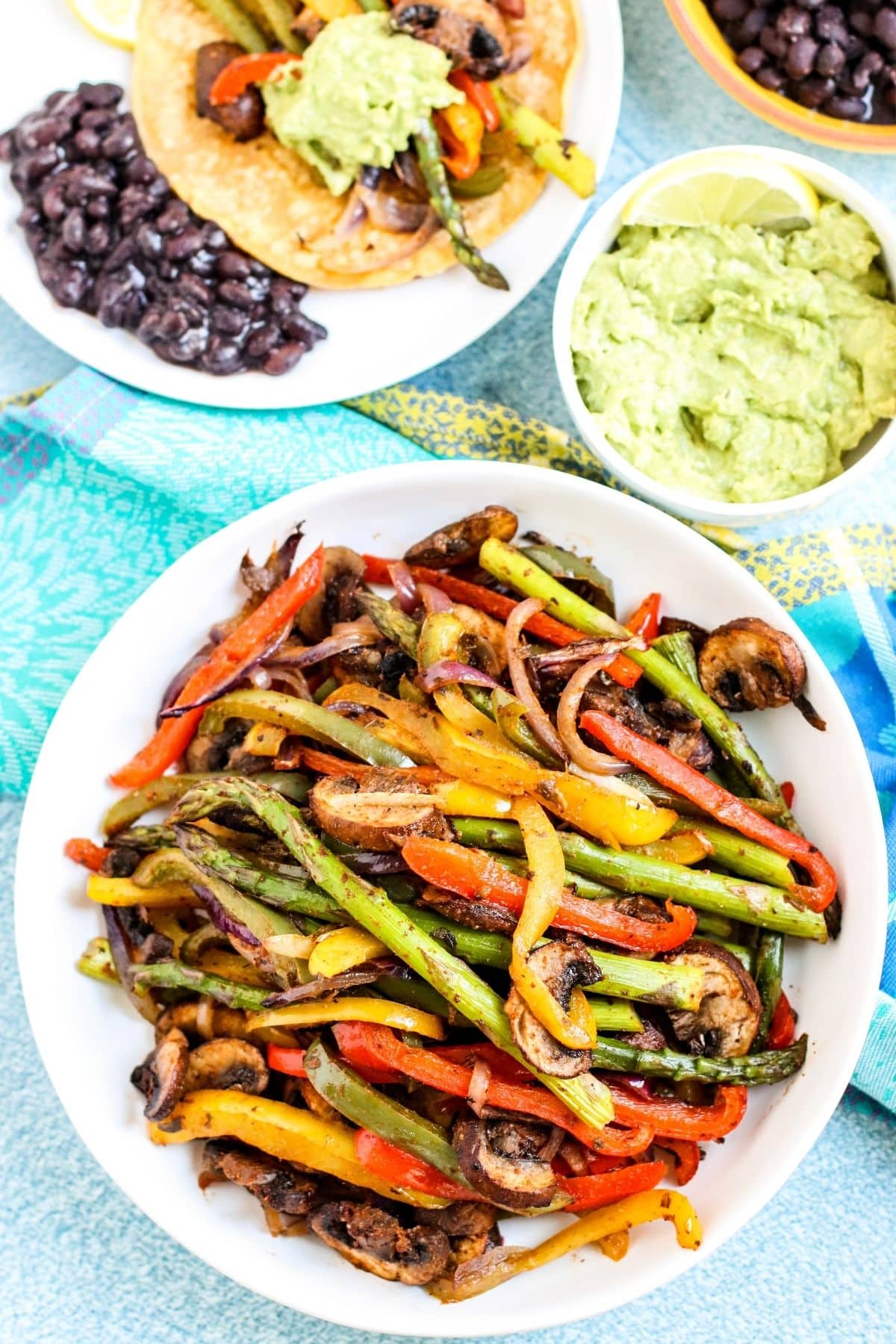
Lifestyle
Some of my favorite things about following a vegan Mediterranean diet go beyond the food. And these aspects contribute to what makes this lifestyle so healthy and rewarding.
Exercise
Ultimately our goal should be to exercise almost every day. But this doesn’t mean you have to train for a marathon or triathlon. Simply moving your body an average of 30 to 60 minutes a day is all it takes.
If you don’t like to run or ride a bike, keep it simple by going for walks or working in your garden. Natural movement works wonders. Consider leaving your car at home and walking to work or to the store, if feasible. Or take your dog on a tour of the neighborhood.
Stretching, yoga, and dance are also good for the body and mind. The key is finding something you enjoy doing and keeping it consistent.
Socializing
These days we spend a lot of our time in front of screens. And more people than ever live alone. But socializing with family and friends helps contribute to better health and well-being.
One of the best ways to spend time with the ones we love is over a meal. Not only is it enjoyable to have meaningful conversations, it makes us slow down and really savor our food.
And if you’re eating alone, make a conscious effort to really taste every bite. Food is meant for both nourishment and pleasure.
A sense of purpose
What is your reason for getting out of bed in the morning? Studies have shown that finding a sense of purpose in life may lead to increased longevity.
If you’re not sure what your sense of purpose is, think about your personal values. What is important to you?
Some examples may be:
- Taking care of your family
- Being a good friend
- Exploring the world and learning from others
- Helping your community and volunteering
- Improving and maintaining your health
Conclusion
I think you’ll find that following a vegan Mediterranean diet is not only pleasurable but will make you feel good both mentally and physically. You may even find that your overall health improves.
Let’s review the main goals of a vegan Mediterranean diet:
- Enjoy meals composed of vegetables and fruit, whole grains, beans and legumes, nuts and seeds, herbs and spices, and healthy fats like olive oil.
- Get outside and move by doing activities you enjoy like walking or gardening.
- Spend time with family and friends, especially over leisurely meals.
- Have a sense of purpose in life.
- Think of it as a lifestyle, not a strict diet.
Amy's tip
Focus on progress over perfection. Take each day one at a time, yet think about the big picture. And if you travel off course, work on making your way back.
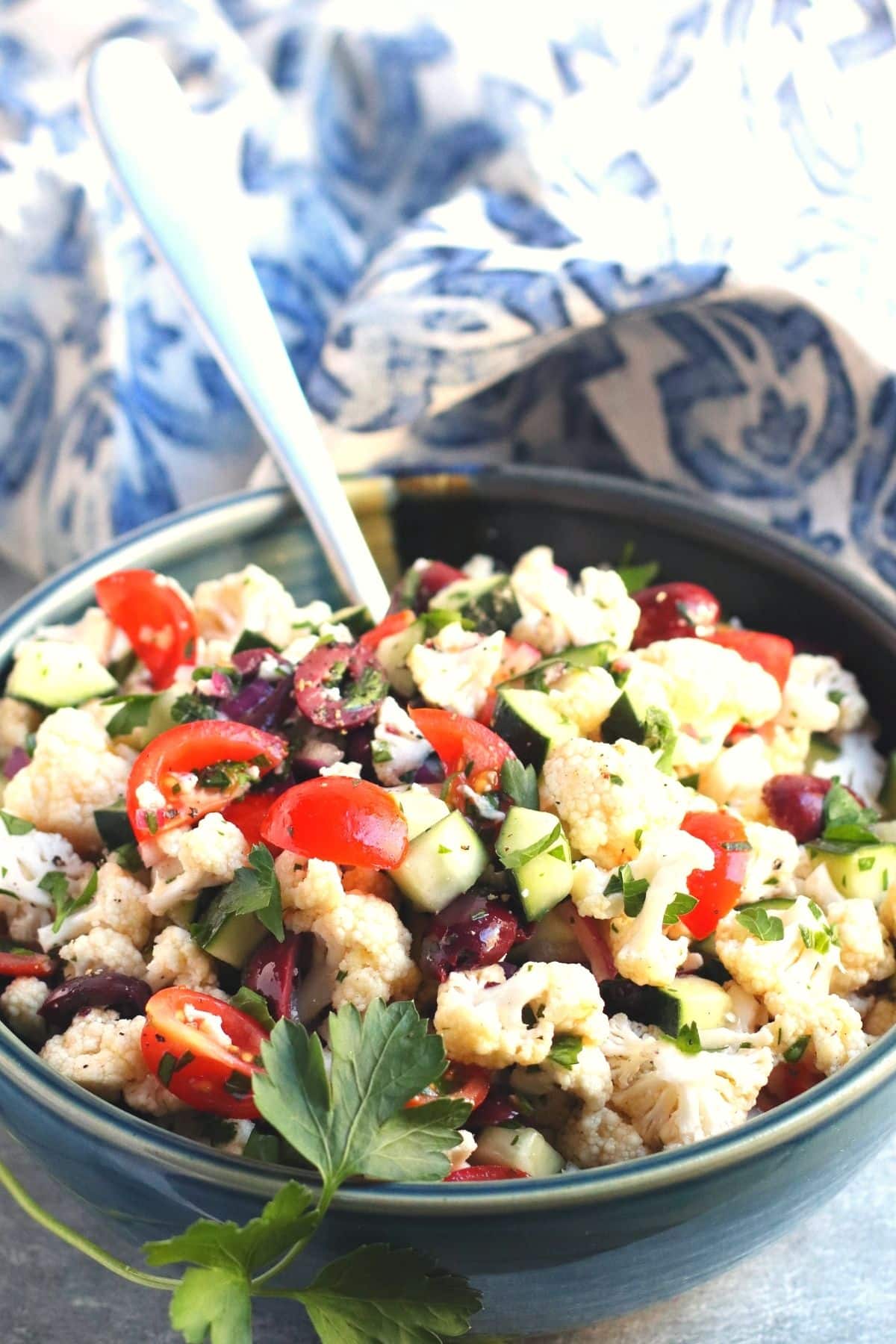
Made this recipe? Have a question? Please leave a comment below. 💙 And for even more recipes, join my email list for community, inspiration & to chat directly with me!
Love and Veggies,
Amy


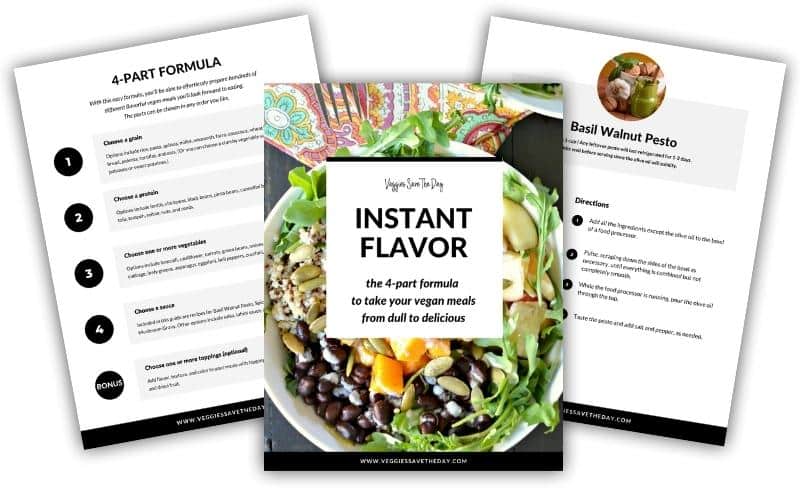
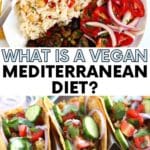



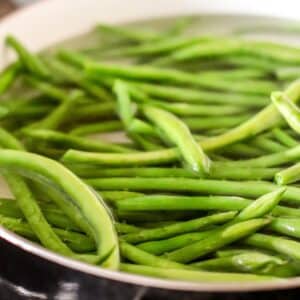
carol perkins says
Hi I am transitioning from a plant based no oil no dairy no salt or sugar diet to a less restrictive diet, because I have lost most of the weight I want to loose. My question is: How much olive oil is too much oil. I don't cook with oil but I want to add it to salad dressings for emulsion and roasted vegetables so they don't burn, and some pesto from the basil in the garden. I don't want to gain weight or harm my health, but it seems a little oil is necessary for satiety, and satisfaction. Under 10g a serving in a recipe?
Amy Katz says
Hi Carol, Congratulations on the weight loss! I think you will find a plant based Mediterranean diet easier to stick to in the long term because it isn't so restrictive. It's also very satisfying, as you mentioned. As far as olive oil, I don't think you need to worry about consuming too much since you will only be using a little for dressings, sauces, and roasting. I would go by what feels right for you rather than looking at the amount in a recipe. For example, if a dressing looks like it has too much oil in it, start with a little bit and see how it tastes. There isn't a strict number when it comes to how much olive oil a person should consume. In addition, you may want to consult with a nutritionist or registered dietitian who specializes in a plant based diet.
Melissa Weimer says
Hey, Amy. Amazing Article. I am following the Mediterranean diet. I was looking for some good recipes. I have some questions and I got the answers here.
After switching to veganism, I have faced many problems like what to eat or what to not. Especially some foods taste are not satisfactory. I have made the Avocado Pesto Pasta by following your recipe. It tastes awesome. I just loved it.
Thanks for sharing!!!.
Amy Katz says
Thank you so much, Melissa!